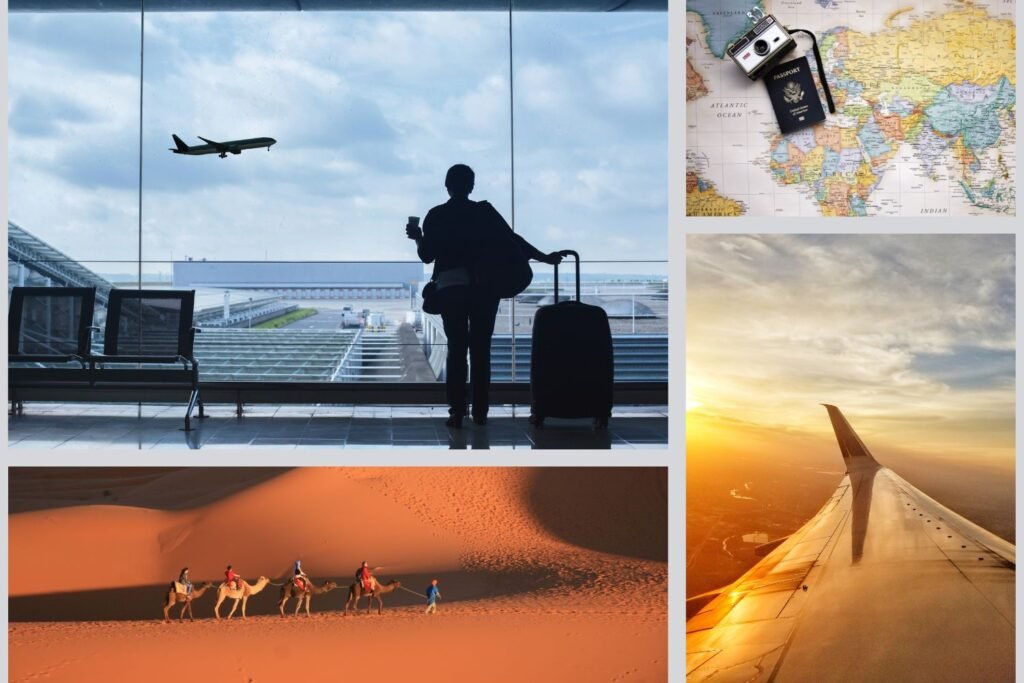Morocco travel requirements encompass various aspects, including visa regulations, health precautions, and entry documentation. Understanding these requirements is essential for a smooth and hassle-free journey to this captivating North African destination.
Here are some additional aspects to consider regarding Morocco travel requirements:
1. Visa Information: Depending on your nationality, you may need a visa to enter Morocco. Check the Moroccan embassy or consulate website in your country to determine the visa requirements and application process. Check ivisa for more informations.
2. Passport Validity: Ensure that your passport is valid for at least six months beyond your planned date of departure from Morocco. Some airlines may also require this validity period for boarding.
3. Health Precautions: Check if any vaccinations are recommended or required for entry into Morocco. It’s also wise to pack necessary medications and carry travel insurance that covers medical emergencies.
4. Currency Exchange: Familiarize yourself with the local currency, the Moroccan Dirham (MAD), and plan to exchange money upon arrival at the airport or in major cities. ATMs are widely available in urban areas.
5. Language: While Arabic and Berber are the official languages, French is widely spoken, especially in tourist areas. It’s helpful to learn some basic French phrases or carry a phrasebook for communication.
6. Cultural Sensitivity: Respect for local customs and traditions is essential. Dress modestly, particularly when visiting religious sites or rural areas, and be mindful of local customs regarding greetings and interactions.
7. Safety Tips: Morocco is generally safe for travelers, but it’s advisable to take common-sense precautions, such as safeguarding your belongings and avoiding isolated areas at night.
8. Travel Insurance: Consider purchasing travel insurance that covers trip cancellation, medical emergencies, and other unforeseen events. This provides peace of mind in case of unexpected circumstances during your journey.
By considering these additional aspects of Morocco travel requirements, you can better prepare for your trip and ensure a memorable and enjoyable experience in this enchanting destination.

Other Aspects of Morocco Travel Requirements
Here are some more aspects to consider when planning your travel to Morocco:
1. Customs Regulations: Familiarize yourself with customs regulations regarding items that are prohibited or restricted from entering Morocco. This includes certain foods, medications, and cultural artifacts.
2. Weather and Climate: Morocco experiences a range of climates, from Mediterranean along the coast to arid in the interior and desert regions. Check the weather forecast for your destination and pack accordingly, especially if you plan to visit during the hot summer months or cooler winter season.
3. Transportation Options: Research transportation options within Morocco, including trains, buses, taxis, and car rentals, to determine the most convenient and cost-effective way to travel between cities and regions.
4. Accommodation Booking: Secure accommodation in advance, especially during peak tourist seasons or popular events. Options range from luxury hotels and riads to budget-friendly hostels and guesthouses.
5. Cuisine and Dining Etiquette: Moroccan cuisine is diverse and flavorful, with influences from Berber, Arabic, and Mediterranean culinary traditions. Be open to trying local dishes like tagine, couscous, and mint tea, and familiarize yourself with dining etiquette, such as eating with your right hand and saying “bismillah” (in the name of God) before meals.
6. Internet and Communication: Purchase a local SIM card or ensure that your mobile phone plan offers international coverage for communication while in Morocco. Wi-Fi is widely available in hotels, cafes, and restaurants, but it’s always helpful to have a backup option for staying connected.
7. Cultural Events and Festivals: Check the calendar for cultural events and festivals happening during your visit to experience Moroccan traditions and celebrations. Events like the Fes Festival of World Sacred Music and the Marrakech International Film Festival offer unique insights into Moroccan culture.
8. Responsible Tourism: Practice responsible tourism by minimizing your environmental impact, respecting local communities, and supporting ethical travel initiatives. Consider joining eco-friendly tours and purchasing souvenirs from local artisans to contribute positively to the local economy.
By considering these additional factors, you can ensure a well-rounded and enriching travel experience in Morocco, immersing yourself fully in its culture, cuisine, and natural beauty.
For more informations contact us now.
